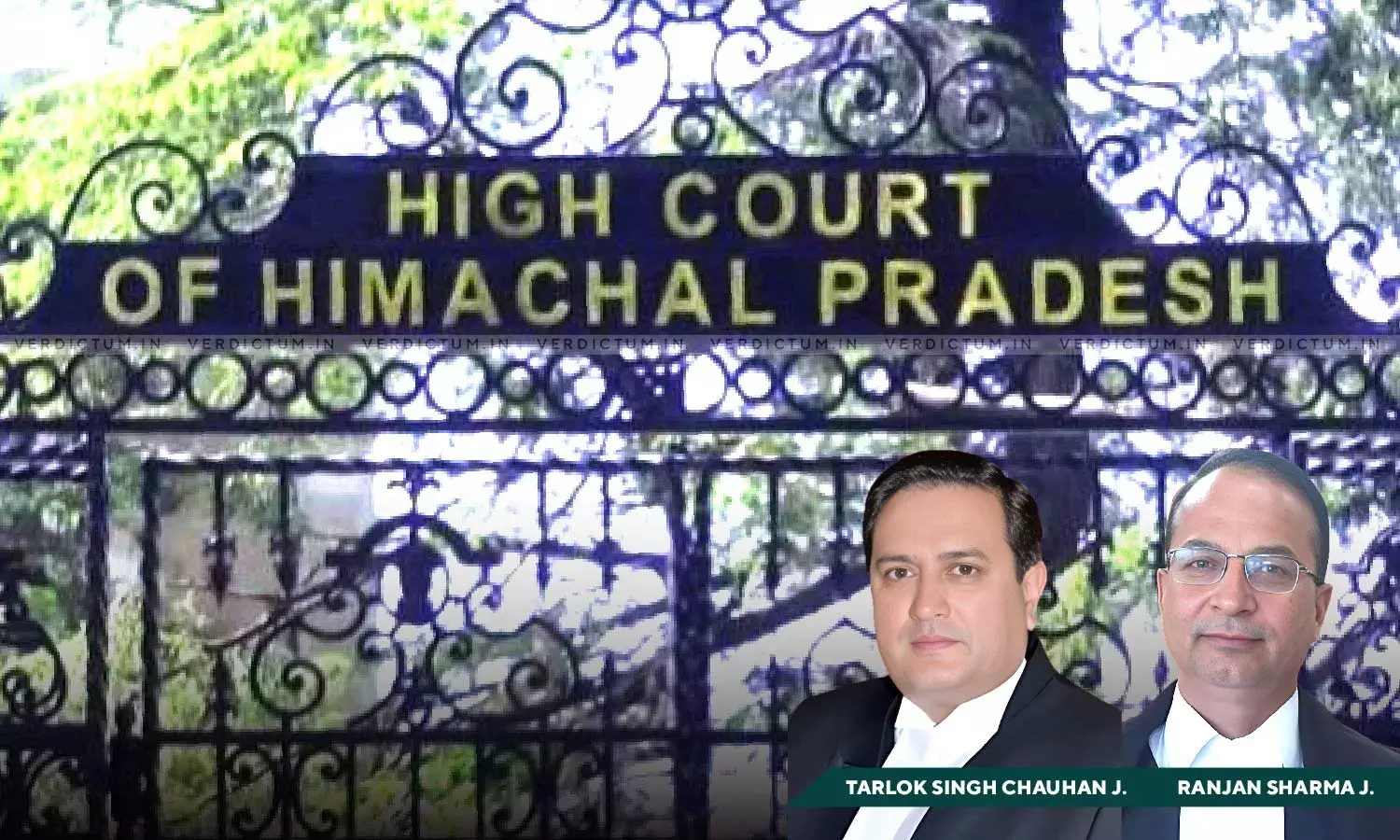False Allegation Of Committing Rape Causes Humiliation & Damage To Accused: Himachal Pradesh HC While Upholding Acquittal Of 4 Men
The Himachal Pradesh High Court has upheld the acquittal of four persons saying that false allegation of committing rape causes humiliation and damage to the accused.
The State had filed an appeal being aggrieved by the acquittal of respondents of the offences punishable under Sections 120-B, 376-D, and 506 of IPC, Section 3 of POCSO Act and Section 3(1)(iii)(x) of the Scheduled Castes and the Scheduled Tribes (Prevention of Atrocities) Act, 1989.
A Division Bench of Justice Tarlok Singh Chauhan and Justice Ranjan Sharma held, “There is no doubt that rape causes great distress and humiliation to the victim of rape but at the same time false allegation of committing a rape also causes humiliation and damage to the accused. An accused has also rights which are to be protected and the possibility of false implication has to be ruled out.”
The Bench said that the testimony of the victim must be consistent and natural in line with the case of the prosecution and free from infirmities which inspire confidence in the Court.
Sr. Addl. A.G. Y.W. Chauhan appeared for the appellant/State while Advocate Vinod Kumar Sharma appeared for the respondents/accused.
Facts of the Case -
As per the prosecution case, when the victim was present at her house in village ‘A’, she received a telephonic call from one of the respondents who asked her to go to village ‘B’ and the victim came here where the other respondents and another person met her. On asking that person, he disclosed that he was employed in veterinary dispensary at ‘BE’ and offered cold drink to the victim. The respondents took the victim to 'BE' on a motorcycle and thereafter she became unconscious. When the victim regained her conscious, she found herself without clothes and noticed that one of the respondents was making her videography and others were sexually assaulting her.
Thereafter, she again became unconscious and when she regained conscious, she asked the respondents to take her to her house and they left her at her house. Then, victim came to know that her photographs were uploaded on WhatsApp, whereby she told this fact to her parents and consequently an FIR was registered after eight months of the incident. The prosecution in order to establish its case examined as many as 29 witnesses and after closure of prosecution evidence, respondents were examined under Section 313 CrPC wherein they denied the prosecution case and pleaded their innocence. However, no evidence in defence was led by the respondents. The Trial Court after recording the statements of the witnesses and evaluating the same acquitted all the accused persons for the offences charged and aggrieved thereby the State filed the instant appeal.
The High Court in view of the above facts of the case observed, “It cannot be presumed that the statement of the victim is always true or without any embellishment. … Reverting back to the facts of the instant case, we find that the testimony of the victim is not natural and consistent with the case of the prosecution as her version has no correlation and does not find corroboration with other material being medical, scientific and expert evidence.”
The Court noted that if the evidence of the victim is read and considered in totality of the circumstances along with the other evidence on record based on which the offence is alleged to have been committed, then her deposition does not inspire confidence and was otherwise required to be corroborated with other evidence on record.
“… the view taken by the learned trial Court is reasonable and plausible where the evidence has been considered in its right perspective and there is palpably no misreading of the evidence”, said the Court.
The Court concluded that the prosecution failed to prove its case beyond reasonable doubt and that the Trial Court committed no error in acquitting the respondents.
Accordingly, the High Court dismissed the appeal and upheld the acquittal of respondents.
Cause Title- State of Himachal Pradesh v. Ved Prakash & Ors.












